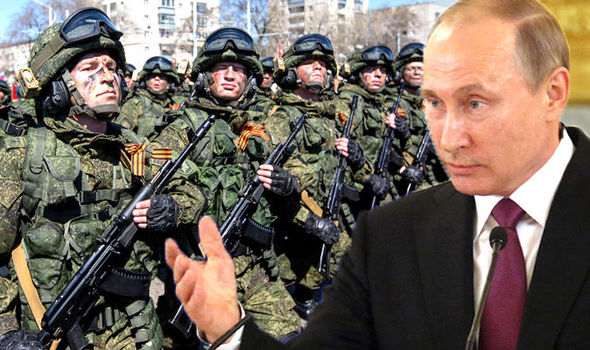War-themed rhetoric has helped the Russian government control crisis-related discontent, but it could backfire.
By Mariya Petkova
Mariya Petkova is a Bulgarian journalist covering the Middle East, the Balkans and Eastern Europe.
When the sanctions hit Russia in 2014 and Moscow responded with a trade boycott, Irina found it funny that people started obsessing about the disappearance of gourmet cheese from stores.
 The 32-year-old education researcher, who asked that only her first name be used, says she didn’t feel the effect of the sanctions either in her everyday life, or in her cheese-buying habits.
The 32-year-old education researcher, who asked that only her first name be used, says she didn’t feel the effect of the sanctions either in her everyday life, or in her cheese-buying habits.
The same year, as oil prices faced a dramatic fall, the rouble collapsed and an economic crisis hit Russia with full force.
Being a member of the Moscow middle class, Irina felt shielded from its effects as well, although she says she did have to limit her travelling abroad and cut down on luxury items.
But as much as prognoses for the Russian economy have been pessimistic, Irina says she is not anxious about her future financial security. What she finds much more worrying is the markedly aggressive turn of government rhetoric which has accompanied the crisis.
“I was shocked to see the extent of ‘militarisation’ of the news. […] It is as if they are trying to prepare the country for war.” she says. “I think this aspect of the crisis is the most dangerous one.”
|
|
The aggressive rhetoric of the government and state media intensified around the crisis in Ukraine and Russia’s standoff with the West, while at the same time, the Russian economy went into recession.
Eliot Borenstein, Professor of Russian and Slavic Studies at New York University, explained this phenomenon. “In many ways, US and European sanctions were a gift to Putin, since they allowed any decline in the economy to be chalked up to the work of Russia’s enemies,” he told Al Jazeera in a phone interview. “Moreover, this facilitates the feeling that coping with economic difficulties is a matter of patriotism.”
The government’s appeal to Russian’s patriotic sentiments seems to have been effective in keeping general dissatisfaction among the populace at bay.
Many Russians have braced themselves for a long economic recession. Yet, there are some, like Irina, who are not willing to accept the consequences of the Kremlin’s militaristic rhetoric.
Click here to read entire article: Aljazeera

